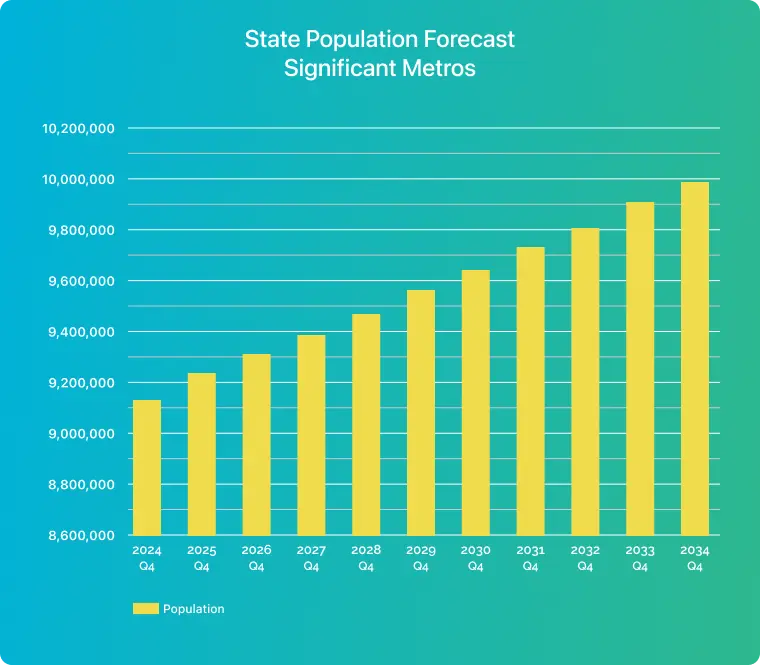North Carolina
Where Quality Living Meets Strategic Growth
North Carolina continues to stand out for its strong population growth, business-friendly climate, and increasing demand for quality rental housing. From the dynamic capital of Raleigh to rapidly growing cities like Raleigh, Greensboro, Charlotte, and Durham, North Carolina’s multifamily market is a compelling region for Summerfield Property Management.
We manage a broad mix of properties across North Carolina’s metro areas and regional growth centers, delivering operational excellence and value in every community we serve.
What we love about North Carolina
North Carolina’s economy is fueled by a mix of finance, healthcare, education, manufacturing, and technology—creating a stable foundation for housing investment. Key employers such as Atrium Health, Bank of America, Duke Energy, Toyota, Honeywell. and Lowe’s contribute significantly to the state’s economic momentum.
Atrium Health is one of the state’s largest healthcare employers, with more than 70,000 employees. Bank of America, headquartered in Charlotte, employs around 15,000 in the region. Duke Energy supports over 7,000 jobs statewide, while Lowe’s—based in Mooresville—contributes more than 8,000 jobs across the state. St. Luke’s is North Carolina’s largest private employer, with more than 15,000 employees statewide.
North Carolina’s job market is projected to grow by over 8% from 2023 to 2033—supported by a pro-growth climate and strong in-migration.
At a Glance
Population Growth
High in-migration driven by affordability, quality of life, and job creation
Average Income
Rising median wages in key growth sectors
Number of Properties
Expanding portfolio across Charlotte metro and regional cities
Management Approach
Tailored asset strategies with an emphasis on compliance and resident experience


Market Insights
North Carolina’s rental housing market is marked by strong demand and supply constraints, especially in the Charlotte and Raleigh metro areas. As housing costs rise in coastal and western states, North Carolina presents a more attainable option for both renters and investors. Secondary markets such as Wilmington and Winston-Salem are also seeing elevated occupancy and investor interest due to economic growth and regional expansion.
2024 Q4
9,116,020
2025 Q4
9,218,669
2026 Q4
9,301,042
2027 Q4
9,380,233
2028 Q4
9,459,794
2029 Q4
9,542,773
2030 Q4
9,627,467
2031 Q4
9,715,178
2032 Q4
9,802,367
2033 Q4
9,888,727
2034 Q4
9,974,046
Challenges
Evolving Compliance Requirements
Staying current with property management regulations and lease laws to ensure smooth operations and tenant satisfaction.
Urban Growth Opportunities and Challenges
Managing the effects of rapid population growth, which drives demand and rent growth but also requires enhanced property maintenance and community engagement.
Renovation and Cost Management
Controlling rising renovation and maintenance expenses, including construction materials and labor, while upgrading existing properties to remain competitive and attractive to tenants.
Looking Ahead
North Carolina’s long-term outlook remains positive, driven by steady job creation, continued in-migration, and a pro-growth business environment. As more professionals, families, and retirees relocate to the state, the need for quality rental housing is expected to grow across both primary and secondary markets.
Whether managing stabilized assets in Charlotte or expanding into high-demand cities like Raleigh and Durham, our teams deliver customized strategies informed by strong local market knowledge.
Local Presence,
Regional Expertise
Our North Carolina operations are supported through our Southeast Regional Headquarters in Atlanta, with dedicated teams managing onsite operations across the state.
Ready to Learn More?
Let’s talk about how we manage better in North Carolina.






